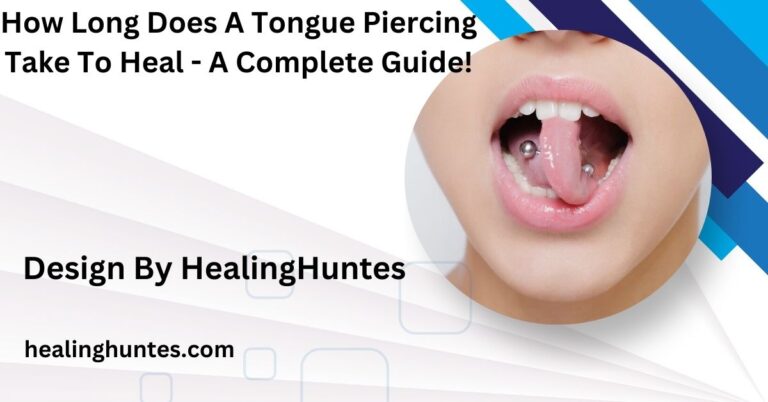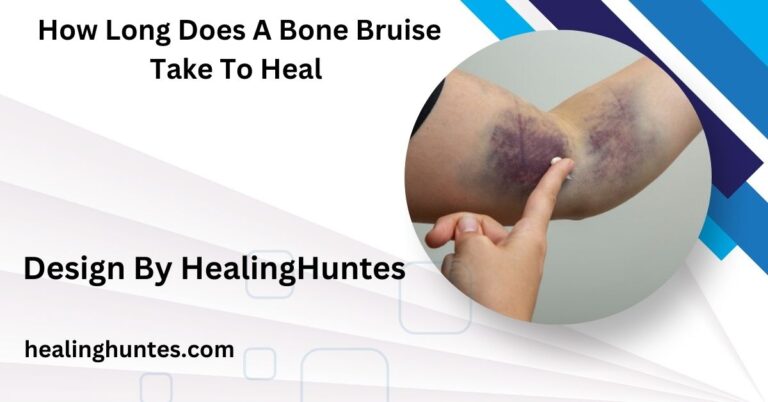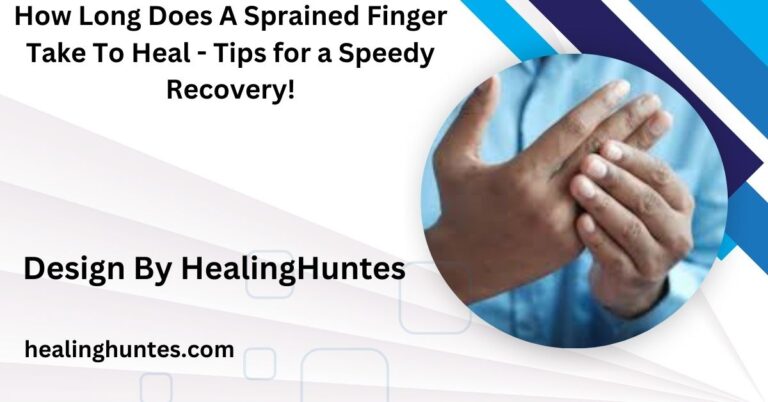How Long Do Scars Take To Heal – An In-Depth Overview!
Scars typically take several months to a year to fully heal, with their appearance improving over time through proper care, treatment, and attention to factors like age and wound severity.
In this comprehensive guide, we will explore the different stages of scar healing, the factors that affect the healing time, and some expert tips on managing scars effectively.
Understanding the Phases of Scar Healing:
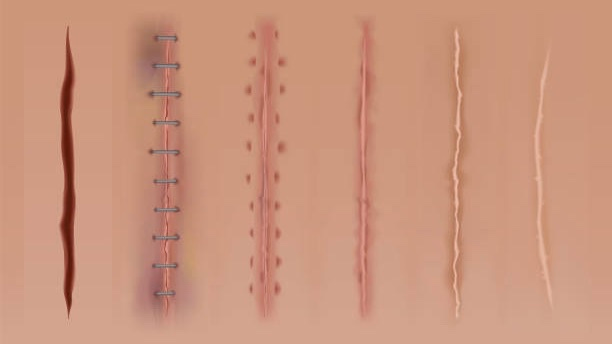
Before we dive into the specifics of how long it takes for scars to heal, it’s important to understand the basic stages of wound healing. The body goes through several phases to repair damaged skin, and scars form during the final stage.
Hemostasis Phase:
The first phase of wound healing is hemostasis, which begins immediately after an injury. During this phase, the body works to stop the bleeding by constricting blood vessels and forming a clot. The clotting helps to protect the wound from infection, and the surrounding tissue prepares for the next stage of healing.
Inflammatory Phase:
Once the bleeding stops, the body enters the inflammatory phase. In this stage, white blood cells rush to the wound to clear away bacteria, dead tissue, and other debris. Although the wound may appear red, swollen, and tender, this is a normal part of the healing process as the body works to reduce the risk of infection.
Proliferative Phase:
During the proliferative phase, the body starts to rebuild new tissue. This involves the formation of collagen, which is the protein responsible for giving the skin strength and structure. Blood vessels also begin to regenerate, and the wound starts to contract, gradually closing the gap.
Maturation Phase:
The final stage of wound healing is the maturation phase, which can last for several months to even years. During this phase, the newly formed tissue strengthens and reorganizes itself. Collagen production continues, but at a slower rate. The scar gradually becomes less noticeable, though it may never completely disappear. Over time, the scar will fade in color and flatten out.
Also Read: How Long Does A Pulled Hamstring Take To Heal – Your Comprehensive Timeline!
How Long Does it Take for Scars to Heal?
Now that we understand the general process of wound healing, let’s dive into the specifics of how long it typically takes for scars to heal. While the length of time can vary depending on several factors, most scars will follow a predictable timeline:
- Minor Scrapes and Cuts: For small wounds, like a paper cut or minor scrape, the healing process can take anywhere from a few days to two weeks. During this time, the wound will scab over and start to close.
- Surgical Scars: For surgical incisions, the initial healing usually occurs within the first 2–4 weeks. However, the scar will continue to mature for up to a year or more. While the skin may close up fairly quickly, the deeper tissues can take longer to heal fully.
- Acne Scars: Acne scars can take months or even years to fully fade. The duration depends on the severity of the acne and the skin’s healing response. Some people may have hyperpigmentation that lingers for months before it fades, while others may develop deeper scars that take longer to improve.
- Traumatic Scars: Deep or traumatic scars, such as those caused by burns, large cuts, or other injuries, may take several months to a year to heal fully. These scars may require additional treatments like surgery or laser therapy to minimize their appearance.
Factors That Affect Scar Healing Time:
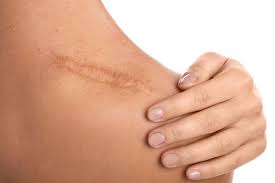
Several factors can influence how long it takes for a scar to heal, including the nature of the injury, the type of scar, and how well you take care of the wound. Here are some of the most important factors that can affect scar healing time:
Type of Injury:
The severity and type of injury play a significant role in how long it takes for a scar to heal. Superficial cuts and minor burns may heal much faster than deeper lacerations or wounds caused by trauma. Deeper wounds take longer to repair because the body needs more time to regenerate the tissue.
Age:
Age can influence the speed of scar healing. Younger individuals tend to heal faster than older adults because the skin’s regenerative abilities decrease with age. Collagen production slows down, and the skin becomes thinner, making it harder for wounds to close quickly.
Genetics:
Some people are more prone to developing noticeable or prolonged scars due to their genetic makeup. For example, individuals with a family history of keloid scars may be more likely to develop these raised, thick scars that take longer to fade.
Skin Type and Ethnicity:
Certain skin types and ethnic backgrounds can influence how scars heal. For instance, people with darker skin tones may be more prone to developing hyperpigmentation or keloids. Lighter-skinned individuals typically have scars that fade more easily, though they may still experience scarring that takes time to improve.
Also Read: Healing Time For Broken Femur – What You Need To Know!
Location of the Scar:
The location of the scar on the body can also affect its healing time. Areas with less blood circulation, like the lower legs, may take longer to heal than areas with better circulation, like the face or upper arms. Additionally, scars that are under constant tension (such as over joints) may take longer to heal and may form more prominent scars due to the stretching.
Infection:
Infection can significantly delay the healing process. If a wound becomes infected, it may become inflamed, painful, and take much longer to heal. Proper wound care and hygiene are crucial in preventing infections that could prolong healing.
Wound Care:
Proper wound care plays a critical role in how quickly a scar heals. Keeping the wound clean, covered, and protected from further injury can prevent complications and speed up the healing process. You should avoid picking at scabs or exposing the wound to irritants like dirt, sweat, or chemicals.
Nutrition and Hydration:
Good nutrition and staying hydrated can promote faster healing. Proteins, vitamins (especially vitamin C), and minerals like zinc are essential for collagen production and tissue repair. A balanced diet can help your body rebuild tissue more efficiently.
Tips for Faster Scar Healing:

While you can’t rush the healing process, there are several things you can do to promote optimal healing and improve the appearance of scars:
Keep the Wound Clean:
Wash the wound gently with mild soap and water. Avoid using harsh chemicals or scrubbing the wound, as this can irritate the area and slow down the healing process.
Moisturize the Scar:
Keeping the scar moisturized can help prevent dryness and promote healing. Use a gentle, non-scented moisturizer or ointment, like petroleum jelly or aloe vera, to keep the skin hydrated.
Use Sunscreen:
Once the wound has healed over and the scar has formed, apply sunscreen to protect it from sun damage. UV exposure can darken the scar and make it more noticeable. A broad-spectrum sunscreen with an SPF of 30 or higher should be applied regularly to the scar.
Massage the Scar:
Once the wound has completely healed, gently massaging the scar can help break down excess collagen and improve blood flow to the area. Use a scar treatment gel or oil, and massage in circular motions for a few minutes daily.
Also Read: How Long Can A Stress Fracture Take To Heal – An In-Depth Overview!
Avoid Smoking:
Smoking can delay wound healing due to reduced oxygen supply to the skin and tissues. If possible, refrain from smoking during the healing process.
Consult a Dermatologist:
For persistent or problematic scars, such as keloids or hypertrophic scars, consulting a dermatologist can help. They may recommend treatments like silicone gel sheets, steroid injections, laser therapy, or even surgical revision to improve the appearance of the scar.
FAQ’s
1. How long does it take for a scar to fade?
Scars typically take several months to years to fade, with the first 2–4 weeks involving initial healing.
2. Can I speed up scar healing?
Yes, silicone sheets and massaging can help speed up the healing process, but complete healing depends on the wound’s depth.
3. Do scars ever disappear completely?
Scars may not completely disappear but will often fade and become less noticeable with proper care.
4. Is it normal for scars to itch?
Yes, itching is a common sign of healing. Avoid scratching to prevent irritation.
5. Does sunscreen help scars?
Yes, sunscreen helps prevent darkening from UV exposure and improves the appearance of scars over time.
Conclusion
The time it takes for a scar to heal depends on factors like injury type, age, and care. Most scars take months to a year to fully mature. Proper wound care, hydration, and professional treatments can significantly improve the healing process. With time, scars typically fade, becoming less noticeable and more manageable as they mature.


